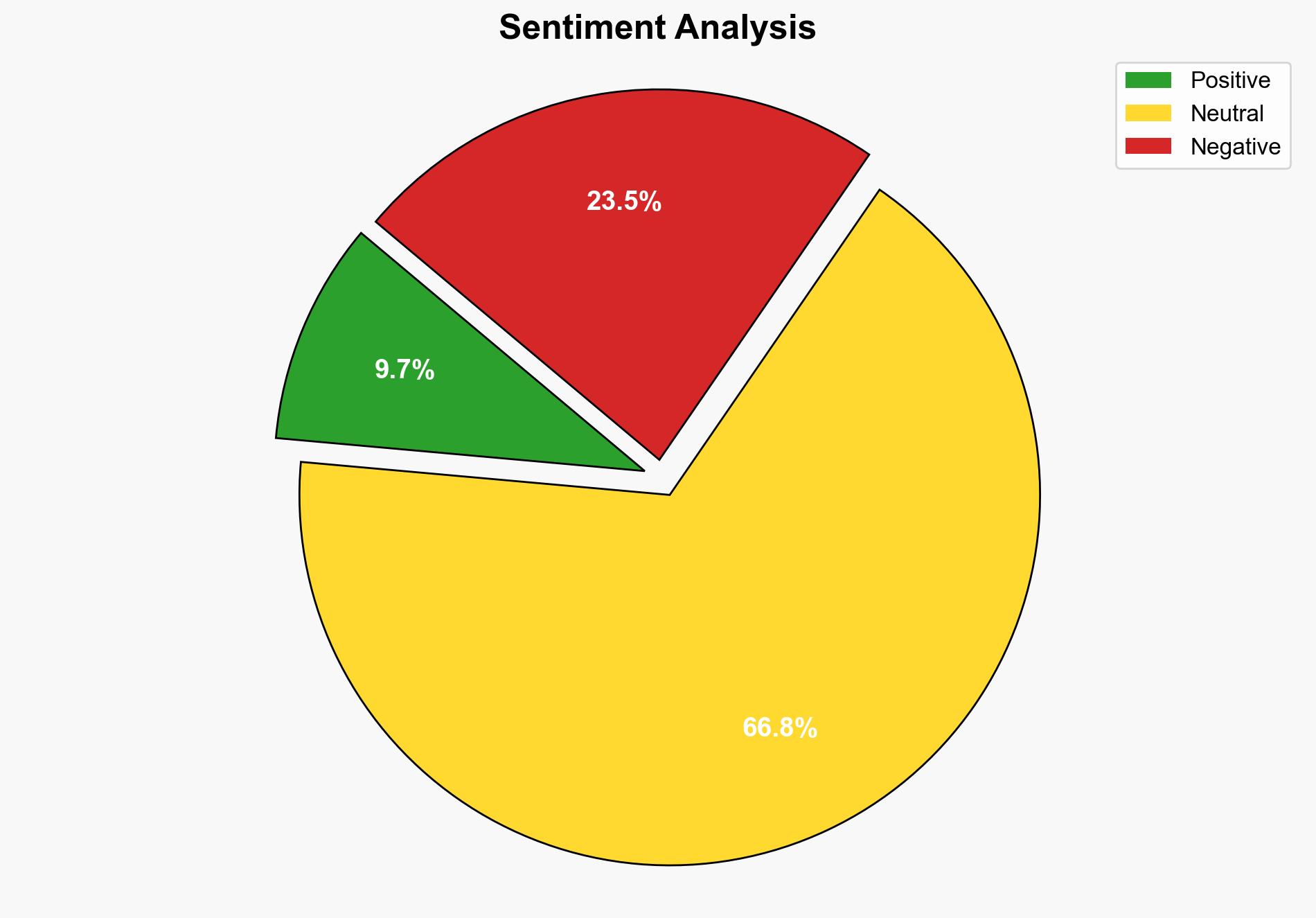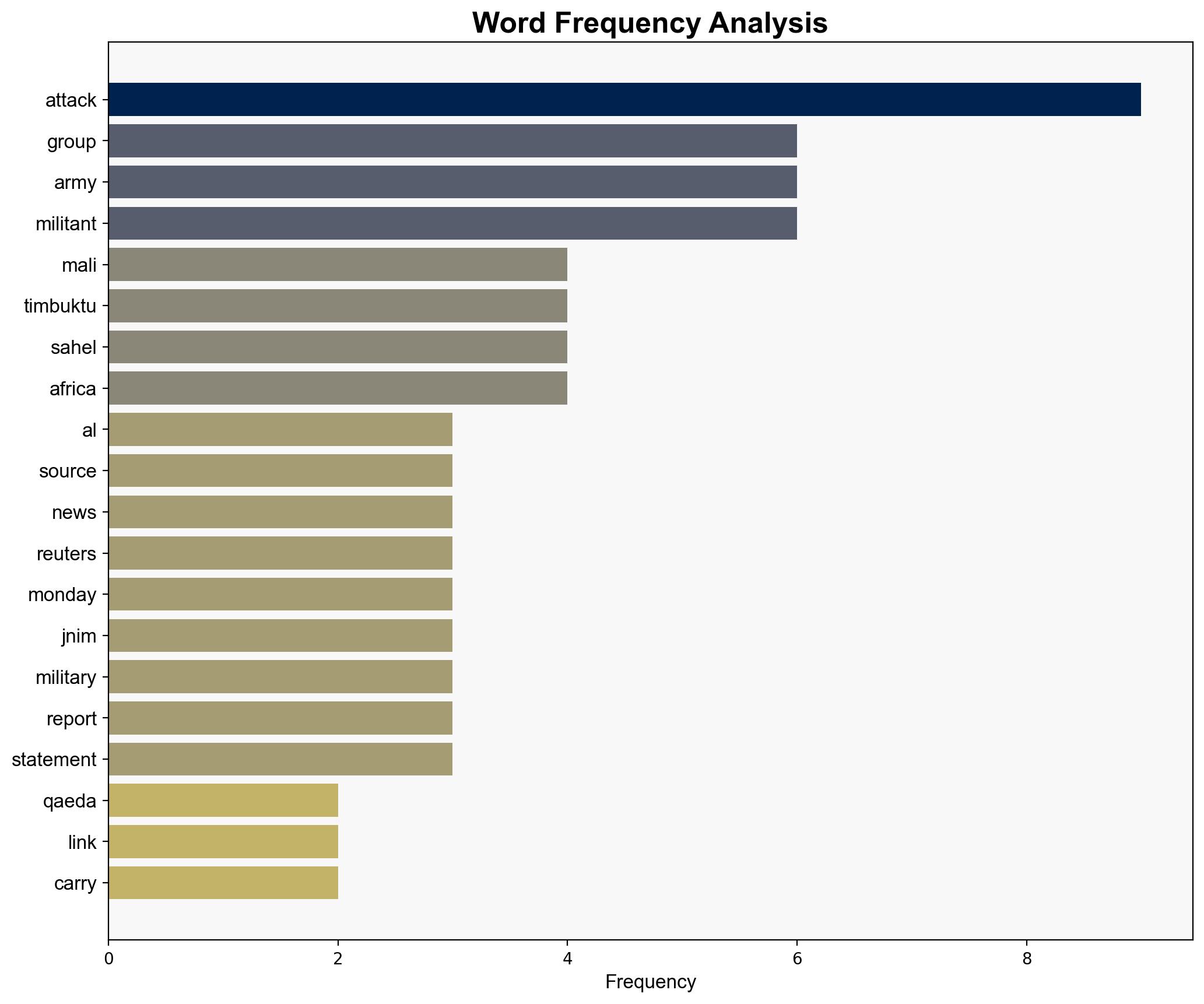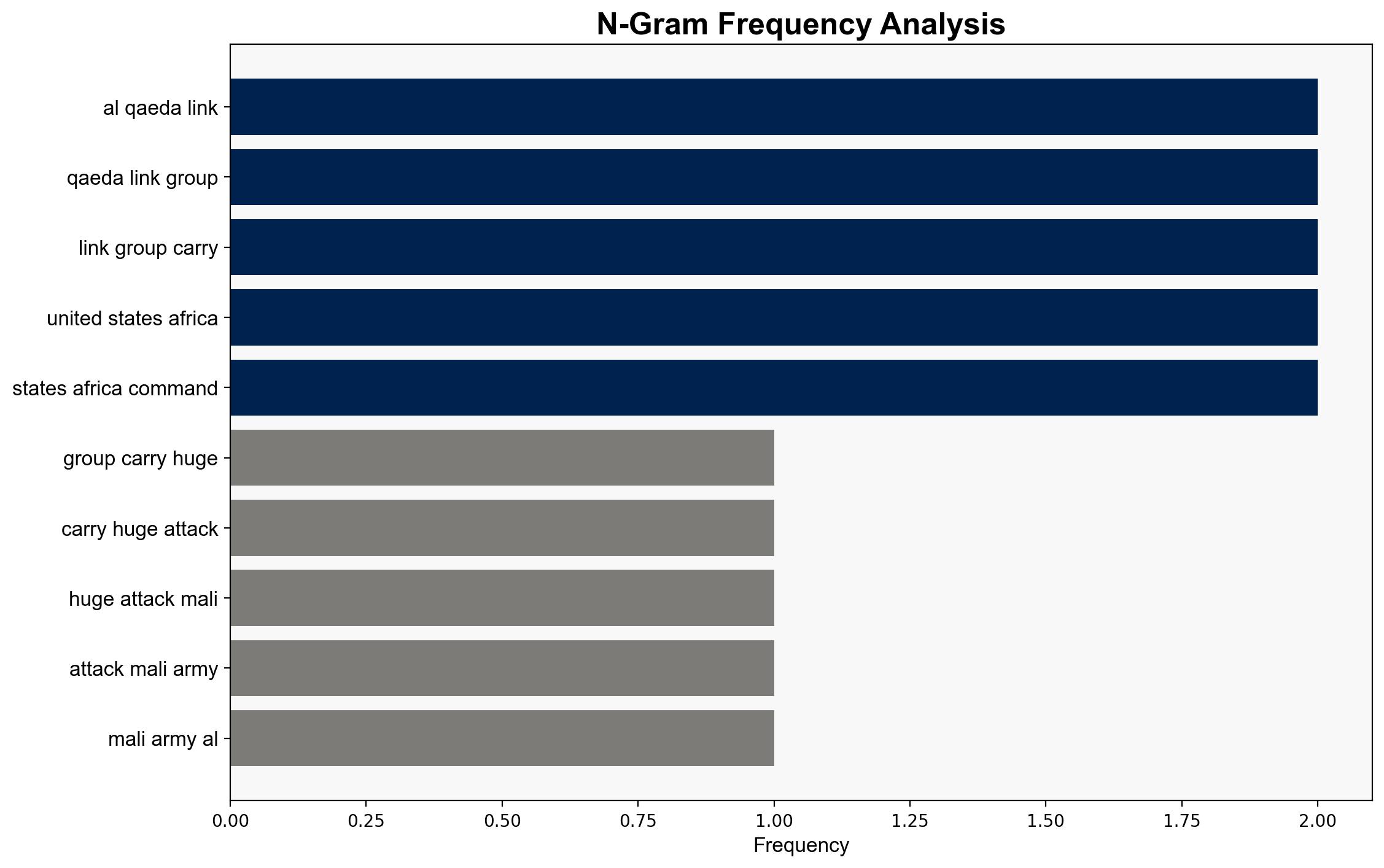Al-Qaeda linked group says it carried out huge attack on Mali’s army – BBC News
Published on: 2025-06-02
Intelligence Report: Al-Qaeda Linked Group Claims Responsibility for Attack on Mali’s Army
1. BLUF (Bottom Line Up Front)
An Al-Qaeda affiliated group, Jama Nusrat ul-Islam wa al-Muslimin (JNIM), has claimed responsibility for a significant attack on a Malian army base in Boulikessi, resulting in multiple casualties. This incident underscores the deteriorating security situation in Mali and the broader Sahel region. Immediate strategic focus should be on bolstering regional security cooperation and enhancing intelligence-sharing mechanisms to counteract the growing influence of militant groups.
2. Detailed Analysis
The following structured analytic techniques have been applied to ensure methodological consistency:
Causal Layered Analysis (CLA)
Surface Events: The attack on the Malian army base and subsequent clashes in Timbuktu highlight the immediate security challenges.
Systemic Structures: Weak state control, porous borders, and limited military capabilities contribute to the vulnerability of the region.
Worldviews: The ideological motivations of JNIM and similar groups are rooted in a broader narrative of resistance against perceived foreign influence.
Myths: The perception of invincibility and martyrdom among militant groups fuels recruitment and radicalization.
Cross-Impact Simulation
The attack may exacerbate instability in neighboring countries such as Burkina Faso and Niger, potentially leading to increased refugee flows and cross-border insurgency activities.
Scenario Generation
Best Case: Enhanced international cooperation leads to successful counter-terrorism operations, stabilizing the region.
Worst Case: Escalation of attacks results in widespread regional conflict, overwhelming local governments.
Most Likely: Continued sporadic attacks with intermittent international intervention, maintaining a state of chronic instability.
3. Implications and Strategic Risks
The attack signifies a potential shift in JNIM’s operational capabilities and intent, posing a direct threat to regional stability. The risk of further attacks on strategic locations, including military and civilian infrastructure, remains high. The involvement of external actors, such as Russian mercenaries, complicates the security landscape and may lead to geopolitical tensions.
4. Recommendations and Outlook
- Enhance regional intelligence-sharing frameworks to improve early warning capabilities.
- Support capacity-building initiatives for local security forces to counter militant threats effectively.
- Encourage diplomatic engagement with regional partners to address root causes of instability.
- Scenario-based projections suggest focusing on strengthening border security and counter-radicalization programs as immediate priorities.
5. Key Individuals and Entities
Jama Nusrat ul-Islam wa al-Muslimin (JNIM)
Gen. Michael Langley
6. Thematic Tags
national security threats, counter-terrorism, regional focus, Sahel instability





